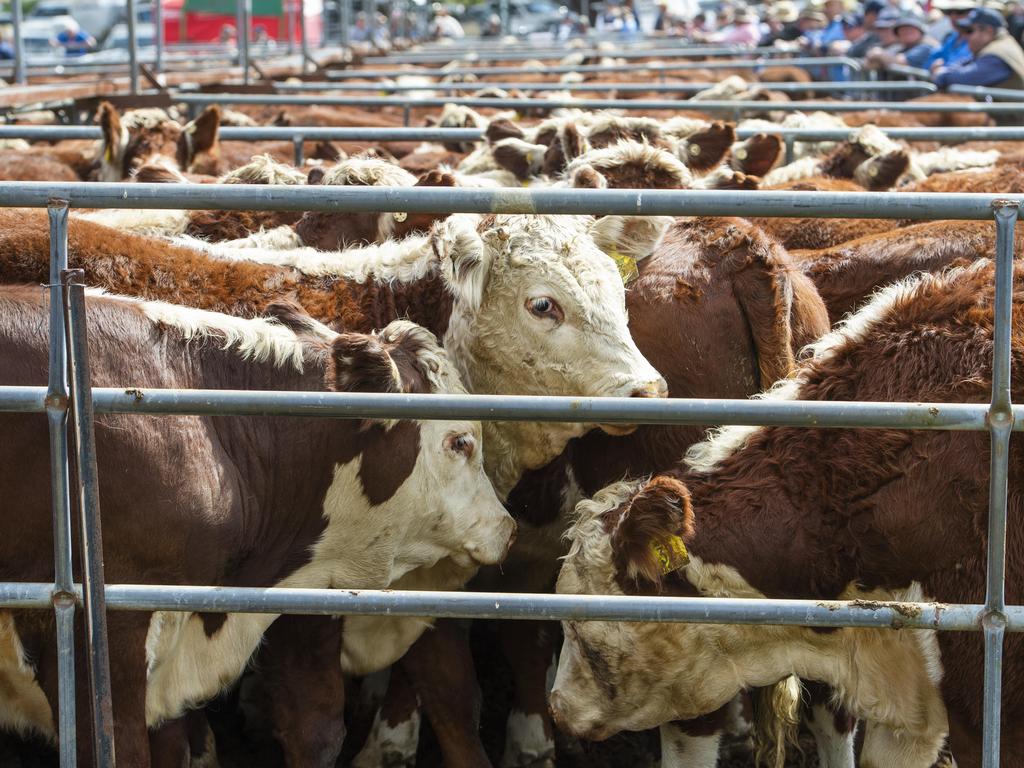How the cost of diesel is impacting farmers
Sky-high diesel prices are taking a toll on the farming sector, driving up supply chain costs and causing a cash flow crisis as the industry prepares to harvest a bumper winter crop.
Sky-high diesel prices are taking a toll on the farming sector, driving up supply chain costs and causing a cash flow crisis as the industry prepares to harvest a bumper winter crop.
Wimmera grain grower Ryan Milgate, who grows wheat, barley, canola, lentils and vetch hay, said he would be paying 70 per cent more this year to harvest than last year, based on current bowser prices.
The retail cost of diesel has risen from an average of $1.47c a litre in September 2021 to $2.04c/lt last week, Australian Institute of Petroleum figures show.
The situation is set to worsen after September 28 with another bowser price spike as Australia’s fuel excise tax – currently 22c/lt after being temporary cut for six months in the 2022 federal budget – is restored to its pre-Budget level of 44c/lt.
Mr Milgate said some farmers will seek a quick cash injection by delivering crops to market as quickly as possible this year.
“A big red number on your bank statement is not a lot of fun. For the average mum and dad the rebate cut has probably been great, but it has not helped agriculture at all,” he said.
“Fuel has not dropped and the (excise) changes have made inputs so much more expensive, and interest and financing rates are also higher right now. In other years those pressures have simply not been there.”
Mr Milgate said at harvest time a grain harvester uses in excess of 1000 litres a day.
“It is very much in the back of the minds of farmers that it is going to cost $1800 to $2000 a day or more just to fill that one machine and then if you are running chaser machines and multiple trucks,” he said.
“You start multiplying it out. Some people run seven harvesters, then multiply the trucks, and it becomes a lot of money quickly. We cannot do much to retrieve that cost because we are a seller into a world market where we are offered the price with a little room for negotiation.”
Victorian Farmers Federation livestock president Steve Harrison said transporting grain from Geelong had increased from $50 a tonne to $70 a tonne and consequently he had decided to grow more feed on his Giffard West property.
“We must do whatever we can to reduce fuel usage. Sending sheep from Gippsland to Ballarat on a B-double was $4 a head, now it is $6.50. So the price does determine where we sell our livestock at the moment. These things have happened in the last 12 months,” he said.
The previous Federal Government halved the fuel excise to ease financial pressures associated with spiralling petrol prices on motorists, but while unleaded petrol prices fell commensurate with the cut, diesel drivers have experienced little saving.
Diesel drivers have been charged up to 60c/lt more than regular unleaded customers at certain points since the excise cut, figures from motoring group RACQ show.
Diesel reached a record bowser high of $2.32c/lt in June.
The average diesel bowser price in March in Sydney, before the cut, was $2.14, and the average value for diesel from 23 May to 29 August was $2.14, according to the AIP.
Meaning, in a perverse outcome for the industry, freight customers expecting transport savings have actually seen costs increase.
Prior to the budget, trucking companies were able to claim a fuel tax credit of 17.8c/lt against the 44.2c/lt excise, leaving them to pay the remainder as a national road user charge (RUC) of 26.4c/lt.
But the credit was suspended at the beginning of the reduction period.
Gippsland-based livestock carrier Storr Transport chief executive Stuart Storr said his weekly fuel bill has risen from $80,000 last November to $100,000 last week.
“I have put my surcharge up by 20 per cent as a consequence and it will only continue to go up as fuel costs increase and we are not receiving the credit to offset that,” he said.
“It’s the worst I’ve seen it in 24 years in the job.”
Transport industry advocates NatRoad and the Victorian Transport Association have been pushing for the new Federal Government to relieve the “unfair suspension” of the fuel tax credit.
VTA chief executive Peter Anderson slammed the temporary changes, saying they had increased, and not decreased the cost of transport as intended, and introduced cash flow and rate structure changes many operators were struggling to navigate.
“It has created a false economy and been a nightmare for the industry,” he said.
A spokesperson for Treasurer Jim Chalmers confirmed that heavy vehicle operators would be entitled to fuel tax credits from September 29, as per arrangements in place prior to the temporary excise reduction.




